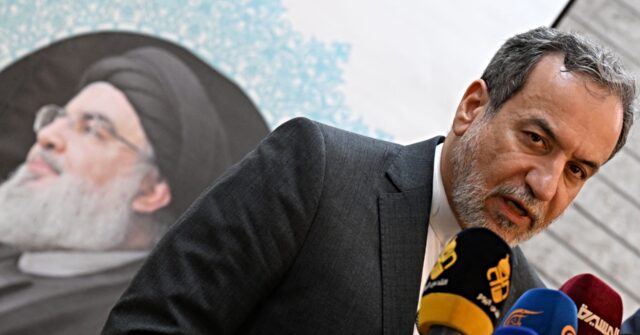Iranian Foreign Minister Abbas Araghchi has embarked on a Middle East diplomatic tour, aimed at garnering support against Israel’s military operations in response to the Hamas attacks that occurred on October 7, 2023. This high-profile tour includes recent stops in countries like Jordan and Egypt, where Araghchi has been engaging with regional leaders to solidify a united front against Israel’s actions, which are being framed as self-defense against Iranian-backed terrorist organizations such as Hamas and Hezbollah. Following the violent surprise attack by Hamas, which involved significant atrocities and the kidnapping of around 100 individuals, Israel declared war on the group, targeting various jihadist factions allied with it in the region.
During his latest meetings in Egypt, Araghchi encountered President Abdel Fattah el-Sisi, who warned against the ramifications of a comprehensive regional conflict, urging Iran to reconsider its antagonistic stance towards Israel. Sisi emphasized the peril that escalated violence could pose to the stability and security of all nations involved, signaling Egypt’s cautious approach. Despite what Iranian media reported regarding Sisi’s encouragement of preference for resource mobilization to stop aggression in Gaza and Lebanon, the Egyptian government has refrained from welcoming Palestinian refugees, which complicates its diplomatic position. Egypt has also faced challenges due to Houthi attacks in shipping lanes, demonstrating the interconnectedness of regional security dynamics.
The Iranian foreign minister also met with Jordan’s King Abdullah II, who echoed similar sentiments regarding the need to avoid becoming a battleground for regional conflicts. Jordan has remained critical of Iran’s activities while also maintaining a delicate position, having previously assisted Israel in neutralizing Iranian threats. The king’s comments reflected Jordan’s traditional diplomatic ties with the West and its refusal to house Palestinian refugees amid the ongoing conflict. In alignment with Sisi, Abdullah assessed that regional de-escalation is critical; however, reports suggest Iranian media framed these discussions primarily around condemnation of Israel’s military actions, illustrating the differing narratives advanced by both sides.
As Araghchi prepares to visit Turkey, the tensions accelerate as Erdogan’s government has been notably supportive of Hamas, even labeling the organization as non-terroristic. This notable support has yielded significant trust between Iran and Turkey, with Araghchi’s expected welcome in Ankara representing a peak in solidarity against Israel. Notably, Turkey has long been a sanctuary for Hamas operatives and has allowed the organization to maintain an office for its operational needs. This partnership places Turkey in a unique position within the Middle East, straddling complex relations between broader regional dynamics and its individual national interests.
The Iranian media’s narrative of Araghchi’s travels often omits the cautionary advice they received from leaders like Sisi and Abdullah, who underscored the dire consequences of escalating conflict. Instead, the dialogues are often framed as unified opposition to Israel’s military responses. The Iranian foreign minister’s push for regional solidarity aims to intensify opposition to Israel, despite the evident reservations from various countries regarding Iran’s regional tactics and ambitions. The prospect of an intensified military response from Iran against Israel points to an increasingly entrenched battlefront that risks enveloping neighboring nations amid rising tensions and polarization.
The ongoing Middle East conflict, intertwined with diplomatic maneuvering, highlights the complexities regional leaders face as they navigate their own national interests while dealing with external pressures from countries like Iran and Israel. As the situation continues to evolve, the responses of regional powers like Egypt, Jordan, and Turkey will likely play critical roles in shaping future conflicts, negotiations, and alliances. The results of Araghchi’s diplomatic endeavors remain to be seen, but they underscore a turbulent landscape marked by deep-seated rivalries, fragile alliances, and the overarching desire of nations to protect their sovereignty and national interests amid a backdrop of escalating military confrontations.

